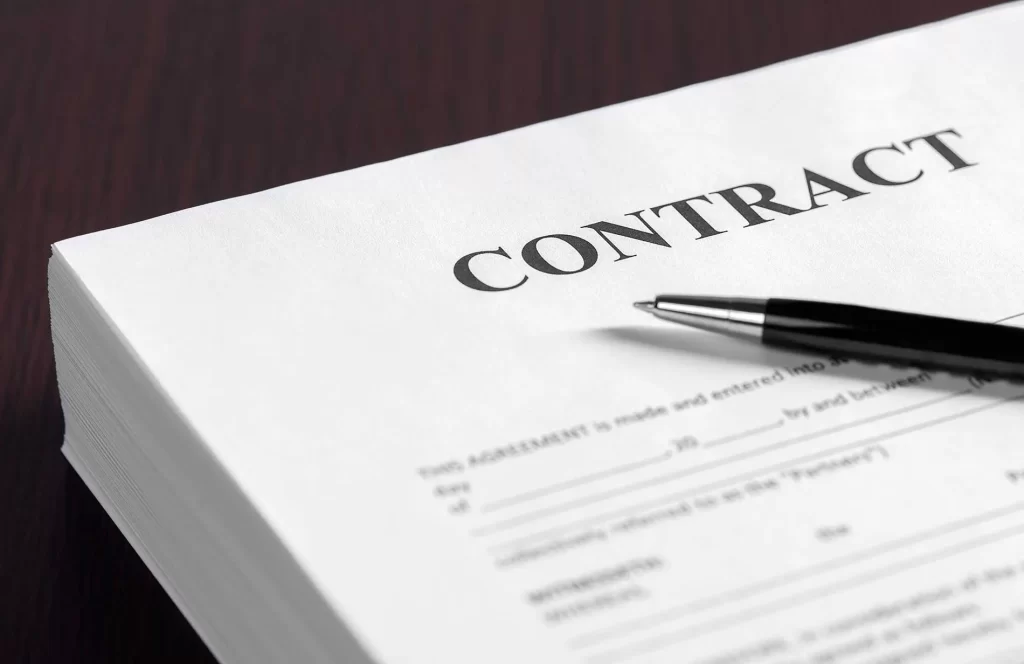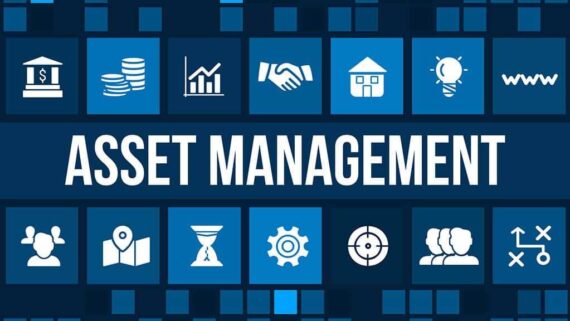Ensure your contracts are skillfully drafted, safeguarding your interests and minimizing disputes. At Bicak, we offer comprehensive legal services to safeguard your business interests throughout the entire contract lifecycle. From identifying early warning signs to navigating pre-action protocols, our strategic approach maximizes your chances of resolving disputes amicably and cost-effectively. Our experienced team of lawyers will guide you from contract drafting to dispute resolution, ensuring clarity and protection at every step. When drafting contracts, our meticulous approach ensures all crucial provisions are covered, minimizing risks and potential disputes. In case of disagreements, our skilled legal advisors provide objective analyses and support, allowing for amicable resolutions and swift dispute management. Our involvement during settlement negotiations, including mediations, further strengthens your position.
Avoiding Contractual Disputes in Turkey
Frequent occurrences of contractual disputes can pose significant challenges to business operations, impacting finances, reputation, and growth prospects. To minimize risks, the primary focus should be on preventing such disputes. In this article, we offer valuable advice on resolving conflicts amicably, ideally without resorting to litigation, or better yet, proactively avoiding their emergence.
Formation of a Contract
The key to forming a valid and enforceable contract is to ensure that there is clarity and mutual agreement at every stage of the process, from the original offer through to the final acceptance. Parties should understand what the terms of the contract are and when key stages of the formation process are achieved.
In Turkey, there are three core elements that must be present in every contract. These are:
- Agreement on the essential terms of the contract;
- Certainty of the terms of the contract; and
- A mutual intention amongst the parties to create legal relations.
If a contract fails in any of these elements, it cannot be legally valid. This would make the contract unenforceable from the moment of its creation.
t is advisable that contracts should be in written form, but this is not a legal requirement in Turkey. Contracts can be formed orally, implied by a party’s conduct, or created through a combination of these forms. However, these types of contracts will not benefit from the certainty that a written contract can provide, or from the greater evidential weight that it carries.
Offer and Acceptance
Contracts are typically brought into existence through offer and acceptance. An offer is a proposal by one party to enter into a contract on certain terms. The terms must be sufficiently detailed and clear so that if they are accepted then a contract can be formed without the need for further bargaining. Often, the terms of a contract will be detailed expressly in a single written document. However, it is also possible to incorporate terms into an offer by reference or through a course of dealing.
Acceptance
Acceptance is the final and unqualified assent to an offer. In order to finalise a contract, the offeree must communicate their acceptance to the offeror while the offer is open for acceptance. A late acceptance will not only be ineffective, but it may amount to a new offer.
The default length of time that a party has to accept an offer is a ‘reasonable period of time’. However, it is best practice to include a time limit within an offer which states that after a specified date or period of time has passed, the offer is no longer open for acceptance. This avoids any uncertainty over what constitutes a reasonable period of time.
Offers will also cease to remain open for acceptance:
- If the offeror communicates their withdrawal of the offer to the offeree;
- If there is a failure of a condition precedent;
- Upon the death or incapacity of the offeror; or
- If the offer is rejected. Once an offer has been rejected it is considered to be terminated, meaning the offeree cannot subsequently change their mind and accept the offer at a later date.
Acceptance becomes effective when it is communicated to the offeror. The moment at which this happens depends on the mode of communication used by the accepting party: written acceptance or acceptance by conduct.
Written acceptance
If a party decides to communicate their acceptance via a posted letter, the postal acceptance rule will dictate if and when that acceptance becomes effective. Under this rule acceptance is deemed to be effective at the point at which the letter is posted, provided that the letter has a stamp and is addressed correctly.
It may more appropriate to communicate acceptance via email, particularly if parties have an ongoing relationship in which email is the primary mode of communication. Acceptance by email will usually take effect immediately.
Acceptance by conduct
Although it is preferable for acceptance to be expressly communicated to the offeror, it can be inferred from a party’s conduct. To avoid confusion over whether an offer has been validly accepted, it is best practice to specify a particular form or method of acceptance in an offer. Clarity on these elements, as well as the substantive terms of the contract, will help parties to identify their obligations under the contract and when these become enforceable. This should mitigate the risk of disputes further down the line.
Ensuring a Clear and Comprehensive Written Contract
Prevention is always better than dealing with the consequences later! To effectively avert potential contractual disputes, it is crucial to establish a well-crafted contract right from the start.
Having a written contract in place that accurately captures the agreed-upon terms between the parties provides the highest level of protection for everyone involved. Unfortunately, many businesses engage in contractual arrangements with either no documentation or only partial terms recorded. Such arrangements carry elevated risks and uncertainties. In case the relationship sours, there may be vastly different accounts of what was originally agreed upon, making it challenging to reconstruct the details from contemporaneous evidence or witness recollections. Consequently, resolving disputes can become significantly more difficult when the terms of the agreement are not documented.
A written contract that explicitly outlines the terms of the agreed deal plays a crucial role in risk management and safeguarding business assets. At a minimum, the contract should cover:
- the expected levels of performance and quality;
- the agreed-upon timescales; and
- the payment terms.
Additionally, a well-drafted contract should also establish a clear process for resolving disputes if they arise (including provisions for governing law and jurisdiction).
Early Warning Signs
There are often early indicators that may raise concerns about a contract’s smooth execution. These indicators will vary depending on the nature of the contract, but some common warning signs include:
- Breakdown in Communication: When a party becomes unresponsive to emails, calls, or fails to provide essential documents, and misses deadlines, it could signal potential issues.
- Increased Formality and Frequent Contract Citation: If a party starts excessively referring to contract clauses, it could be a warning sign of impending problems, though not definitive evidence.
- Delays in Delivery or Payment: Regular late deliveries or payments are often a clear signal that trouble is brewing and should not be ignored.
- High Turnover in Senior Management: A significant number of personnel changes at senior board or management levels within the contracting party may indicate internal difficulties that could impact the contract’s performance. Similarly, excessive departures from the organization can be a concerning sign.
Being vigilant about these early indicators can help you address potential contract issues before they escalate into major disputes.
Effective Communication
Words alone are not enough! Maintaining open lines of communication can often prevent significant legal expenses down the road. Many disputes stem from misunderstandings, so it is crucial to communicate the issues clearly that you believe are in dispute and propose potential solutions. Equally important is to attentively listen to the other party’s response and be open to finding compromises.
To support your position, keep detailed records of all discussions and decision-making processes so that you have solid evidence if needed in the future. When attempting to resolve a dispute, especially if concessions or compromises are being made, ensure that all conversations, meetings, and communications (including emails and other electronic messages) are expressly stated and understood to be “without prejudice” unless a formal settlement is achieved. This “without prejudice” approach helps protect your interests until a final resolution is reached.
Exercise Caution and Understand Your Position
While swift action may sometimes be necessary, rushing into decisions can lead to unnecessary escalation of disputes, especially when emotions are involved. It is crucial to maintain objectivity and distance yourself from emotions. Take the time to assess the situation thoroughly, considering all obligations, liabilities, and potential consequences before taking any steps. For instance, understanding the contractual limitations on liability is vital, as they can significantly impact the outcome of any claim.
In the heat of the moment, avoid impulsively terminating the contract or accusing the other party of breach solely out of frustration. Immediate termination should be justified in rare circumstances, as wrongful termination may result in substantial financial penalties, even if you were not at fault initially. It is essential to establish whether a breach has genuinely occurred and, if so, how severe it is before taking action.
However, do not procrastinate excessively, as ignoring issues may lead to further escalation. If urgent steps are required, take them, but ensure a comprehensive assessment of the situation first.
If you possess the right to terminate the contract, delaying this decision could lead to losing that right. Likewise, there may be situations where immediate measures are necessary to protect your business, such as notifying insurers, suspending payments, or halting goods or services provision. Involving legal advisors at this stage can help reduce the risk of taking fatal steps that could prove costly for the contract’s outcome.
Document Preservation
It is of utmost importance to preserve all relevant documents from the beginning and suspend any standard document/data destruction procedures while resolving a dispute. This precaution ensures that potentially critical documents are not lost due to routine destruction, which could be part of a party’s disclosure obligations under the Civil Procedure Rules if the dispute remains unresolved and progresses to litigation.
When a dispute arises, it is wise to promptly organize all pertinent paperwork. Gather copies of the contract, any variations, agreed amendments, annexures, and significant correspondence related to the dispute. Having this comprehensive information readily available will facilitate internal discussions, communication with legal advisors, decision-makers, and, importantly, with the involved parties in the dispute.
Privilege Considerations
Throughout the dispute’s duration, written and oral communications must be handled carefully to protect your legal position.
Correspondence with legal advisors that is relevant to the dispute will be protected by privilege and generally not required to be disclosed to the opposing party. To maintain privilege, caution must be exercised to retain the confidentiality and not distribute such communications too widely.
Internal communications may not enjoy privilege protection, necessitating limitations on internal discussions and discouraging written communication concerning the dispute. Legal advisors can offer guidance on how to safeguard and manage privilege appropriately.
Comply with Contractual Dispute Resolution Requirements
The first step is to verify whether the contract contains a dispute resolution (DR) clause. This clause outlines the necessary steps the parties must take to resolve any disputes before resorting to a more formal process and specifies the forum to be utilized if informal negotiations do not succeed. Early identification of the potential route for dispute resolution, whether it be court litigation, arbitration, mediation, or expert determination, is crucial as it impacts the approach, potential costs, and enforcement outcomes.
If the contract includes an escalating DR clause, it will typically outline the sequential steps that must be followed to resolve the dispute before initiating formal legal proceedings.
Adhering to the DR clause is of utmost importance. Failure to do so might hinder your ability to bring a claim.
In situations where there is no DR clause, or it does not mandate a specific DR process, parties can still agree on an informal and non-binding resolution process before considering court action. Non-binding DR processes offer flexibility, are generally cost-effective, and can lead to swift resolutions. In fact, courts expect parties to attempt dispute resolution without resorting to litigation initially, though careful consideration should be given to agreeing on a formal mechanism once a dispute has commenced.
Ensure Compliance with Pre-Action Protocols
Before making a final decision to initiate legal proceedings, it is essential to ensure that any relevant pre-action protocols are followed.
Under the Civil Procedure Rules, parties involved in most disputes are obligated to complete the steps outlined in the relevant pre-action protocols before commencing formal legal proceedings. These protocols serve several purposes:
- Facilitate the early and comprehensive exchange of information about the prospective claim.
- Encourage parties to explore settlement options before initiating litigation.
- Support efficient case management when litigation is unavoidable.
Following pre-action protocols provides a final opportunity for reaching an amicable settlement. Not only does it mandate the exchange of information about the dispute, but it also signals to the opposing party that you are serious about pursuing a claim, potentially prompting them to engage more constructively in negotiation and settlement discussions.
Don’t Overlook Limitation Periods!
Once a dispute arises, it is crucial to consider the limitation period – the timeframe within which a claim must be brought. Missing the limitation deadline can result in the inability to file a claim, even if the prospects of success are strong.
In Turkey, the primary statutory limitation period for claims arising from a breach of a simple contract (not a deed) is generally one year. However, some situations may have longer limitation periods (e.g., contracts involving a deed), while others may have shorter ones. Certain contracts might even specify a contractual timescale for bringing a claim, which could be less than the one year provided for by law. Seeking legal advice on the dispute and related key issues at an early stage is advisable to avoid potential limitations and ensure proper handling of the matter.
Seek Legal Advice
Seeking legal advice from an external legal experts at an early stage is highly beneficial. Additionally, involving lawyers at other key stages can prove invaluable:
- During Contract Drafting: Lawyers can ensure that the contract clearly reflects the agreed-upon terms, including essential provisions, obligations, liabilities, and timescales. They can also ensure proper incorporation of dispute resolution clauses, as well as provisions concerning termination and damages.
- When a Dispute Arises: Undertaking a legal analysis helps ascertain the extent of the dispute and offers an independent perspective on the breakdown of the relationship and potential resolutions. Dealing with disputes can be time-consuming, and legal advisers can provide valuable support, proving to be more cost-effective in the long run and adding impartiality to the process.
- During Settlement Negotiations: Involving lawyers can help assess the seriousness of the situation and ensure that all aspects of the dispute are addressed in any potential settlement. Having external legal advisers participate in formal settlement discussions, like mediation, can emphasize the dispute’s significance to the business. They can also assist in preparing opening statements, position papers, and strategies for mediation.
- When Legal Proceedings Are Likely: Legal advisers can ensure compliance with court rules and protocols, meeting all deadlines. They are well-equipped to draft claims, defenses, and other court documents or instruct counsel to do so.
Adapting Your Approach
Given that defendants tend to fare worse than claimants in disputes, adopting a proactive stance in dispute management and avoidance is crucial. The top ten tips provided offer guidance on evaluating your current approach to contracts and effectively managing supplier relationships. For further insights into alternative conflict resolution approaches, please contact us.
Embrace a proactive stance with Bicak. Our strategic counsel enhances supplier relationships, reduces costs, and empowers your business to thrive. Let our expertise take you to the forefront of dispute avoidance and effective resolution. Trust Bicak to protect your interests and secure your business’s success.
 English
English Türkçe
Türkçe Français
Français Deutsch
Deutsch










Comments
No comments yet.